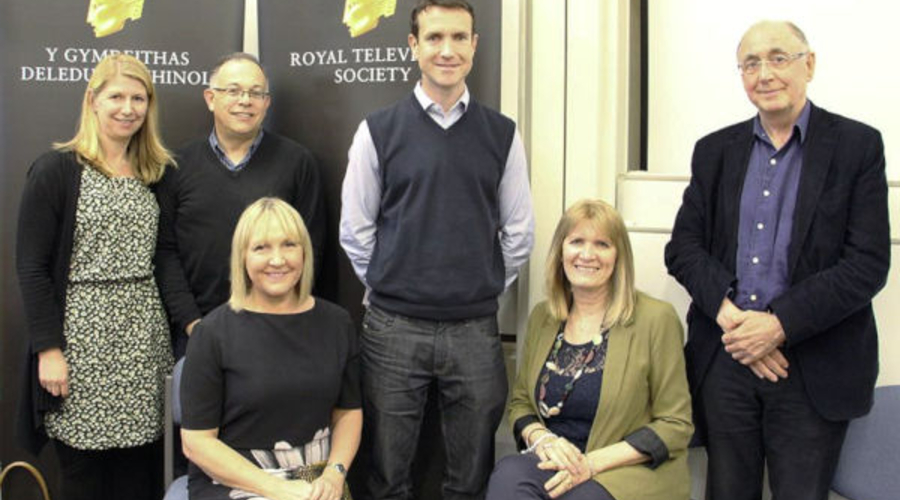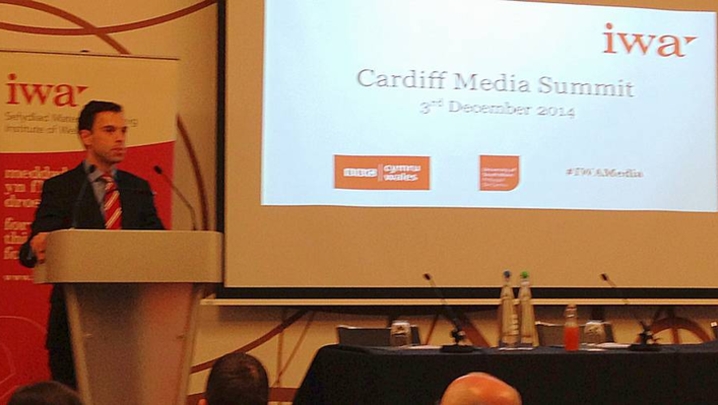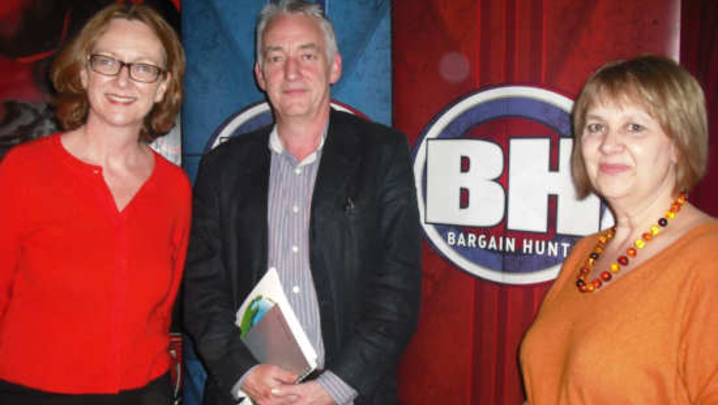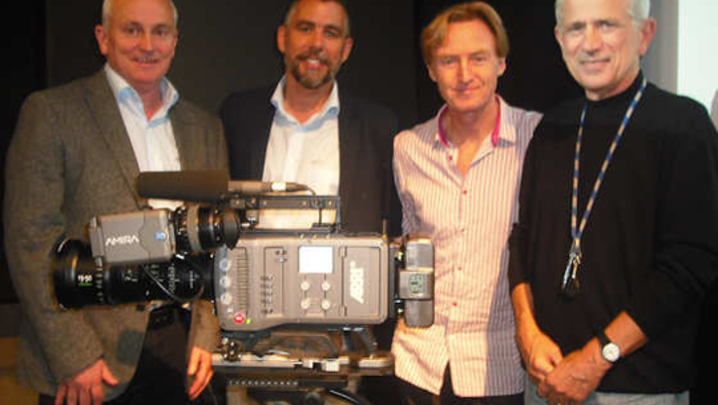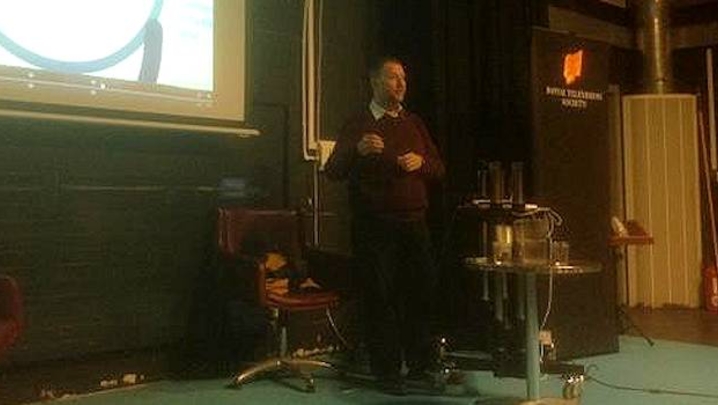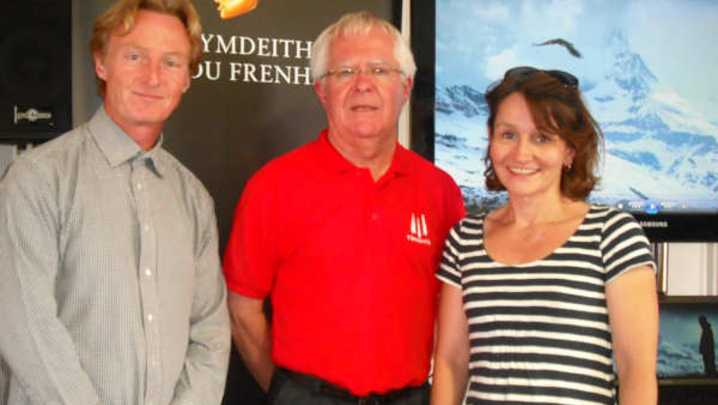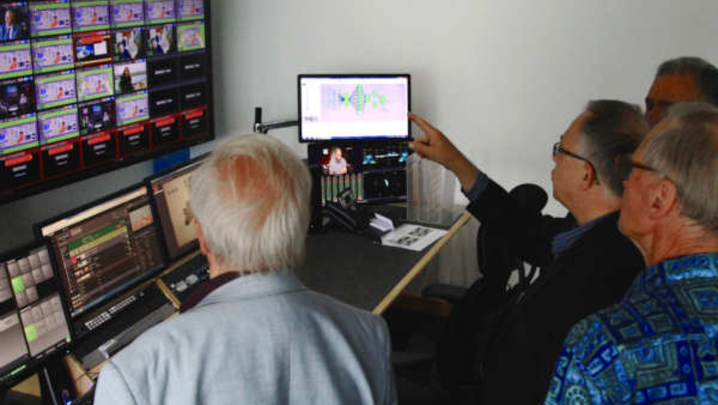Above: Wendy Sadler, Hywel Wiliam (Administrator RTS Wales), Llion Iwan, Elis Owen
(seated) Prof. Julie Williams, Elin Rhys
(Photo from JOMEC)
TV producer Angela Graham, a tutor at the University's School of Journalism, Media and Cultural Studies, claims in her recent School blog post that, "on network television, science is an established and popular part of the viewing menu, yet in Wales, apart from ecology and nature programmes, science is seldom commissioned for the small screen". To probe the reasons, she produced a discussion on Science on TV in Wales in June, which drew three fields together: scientists, TV producers and commissioners, along with academics and students. The event was arranged in partnership with Cardiff University and the educational social enterprise, Science Made Simple, whose Director, Wendy Sadler, chaired the discussion, with contributions from Prof. Julie Williams, Chief Scientific Adviser for Wales, Elin Rhys, an independent producer with Telesgôp, Llion Iwan, Commissioner, Factual Content, S4C, and Elis Owen, Commissioner, BBC Cymru Wales.
Elin Rhys recently broke the dearth of tv science by producing Dibendraw for S4C, a Welsh language mainstream science series, broadcast in peak. It covered remarkable stories, including the contribution made by Welsh speaking engineers and scientists at CERN, the European centre for nuclear research. A second series has been commissioned.
But while S4C is an independent service, BBC Wales opts out of the BBC 1 network to broadcast English language programmes for Wales, and Elis Owen argued that general arts or science magazine programmes are no longer viable, "we have to achieve ratings comparable with network shows, and a dedicated science slot would be a turn-off for viewers". He suggested that the best way to tackle science stories is within news and current affairs, noting that, (from his past experience heading up ITV in Wales), "science was never a mandated strand within the ITC and Ofcom regional Channel 3 licences".
Llion Iwan admitted that, "I ditched science as soon as I could at school", but 30 years later, as a commissioner, he sees the power television has to make the subject come alive, particularly if you have "strong narratives and engaging characters". Julie Williams argued that great stories of scientific achievement occurring right now in Wales must be covered by television, to reflect the reality and potential of the sciences for Wales. Panellists and audience were enthused by each other's passion, and by the prospect of a new forum to continue the dialogue between scientists, academics and programme makers in Wales.


Science on Television in Wales
RTS Wales Centre and Cardiff University with
Science Made Simple
5th June, Bute Building, Cardiff University
Angela Graham gave some of the background to this debate in an article, Science on television in Wales (when did you last see…?), in the Institute of Welsh Affair's Web site.

